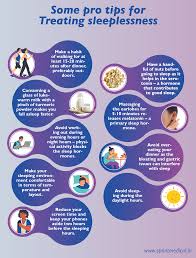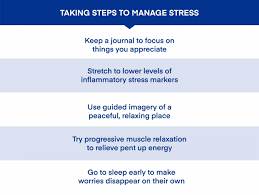The Cure for Insomnia
Insomnia, the inability to fall asleep or stay asleep, can have a significant impact on one’s quality of life. Sleep is essential for our physical and mental well-being, and chronic insomnia can lead to fatigue, mood disturbances, and impaired cognitive function.
While there is no one-size-fits-all solution for insomnia, there are several strategies that can help improve sleep quality:
- Establish a bedtime routine: Creating a consistent bedtime routine signals to your body that it’s time to wind down and prepare for sleep. This may include activities such as reading a book, taking a warm bath, or practicing relaxation techniques.
- Avoid stimulants: Limiting caffeine intake, especially in the afternoon and evening, can help prevent disruptions to your sleep cycle. Similarly, avoiding electronic devices with blue light exposure before bed can also promote better sleep.
- Create a comfortable sleep environment: Ensure that your bedroom is conducive to sleep by keeping it cool, dark, and quiet. Investing in a comfortable mattress and pillows can also make a difference in promoting restful sleep.
- Practice mindfulness and stress-reduction techniques: Stress and anxiety are common contributors to insomnia. Engaging in activities such as meditation, deep breathing exercises, or yoga can help calm the mind and promote relaxation before bedtime.
- Consider therapy or medication: In some cases, seeking therapy from a mental health professional or consulting with a healthcare provider about medication options may be necessary for managing chronic insomnia.
If you continue to experience persistent insomnia despite trying these strategies, it is important to consult with a healthcare provider to rule out any underlying medical conditions that may be contributing to your sleep difficulties.
Remember that improving your sleep habits takes time and patience. By making small changes to your routine and lifestyle, you can take steps towards achieving restful and rejuvenating sleep each night.
9 Benefits of Curing Insomnia: Unlocking Better Health and Well-Being
- Improved quality of sleep leads to better overall health and well-being.
- Enhanced cognitive function and mental clarity from getting sufficient rest.
- Reduced risk of chronic conditions associated with poor sleep, such as heart disease and diabetes.
- Increased energy levels and productivity throughout the day.
- Better mood regulation and emotional stability with adequate sleep.
- Improved immune function and ability to fight off illnesses.
- Enhanced focus, concentration, and memory retention from restful sleep.
- Decreased stress levels and anxiety through improved sleep habits.
- Overall improvement in quality of life by effectively managing insomnia.
Challenges in Finding the Right Insomnia Cure: Strategies, Lifestyle Changes, Side Effects, and Dependency Risks
- Not all strategies work for everyone, leading to trial and error in finding the right solution.
- Some methods for treating insomnia may require lifestyle changes that can be challenging to implement consistently.
- Therapies or medications used to treat insomnia may have potential side effects or risks that need to be considered.
- Long-term reliance on certain sleep aids or treatments may result in dependency or tolerance, requiring adjustments over time.
Improved quality of sleep leads to better overall health and well-being.
Improved quality of sleep is a crucial pro of finding a cure for insomnia as it directly impacts our overall health and well-being. When we are able to achieve restful and uninterrupted sleep, our bodies have the opportunity to repair and rejuvenate, leading to increased energy levels, improved mood, enhanced cognitive function, and strengthened immune system. Quality sleep plays a vital role in regulating hormones, supporting healthy metabolism, and promoting emotional resilience. By prioritizing better sleep habits and addressing insomnia effectively, individuals can experience a profound positive impact on their physical, mental, and emotional health.
Enhanced cognitive function and mental clarity from getting sufficient rest.
Getting sufficient rest and overcoming insomnia can lead to enhanced cognitive function and mental clarity. When we are well-rested, our brains are better able to focus, concentrate, and process information effectively. Adequate sleep allows for proper memory consolidation and problem-solving skills, ultimately improving our overall cognitive abilities. By prioritizing restful sleep, we give our minds the opportunity to recharge and function optimally, leading to better decision-making, creativity, and mental sharpness throughout the day.
Reduced risk of chronic conditions associated with poor sleep, such as heart disease and diabetes.
By effectively addressing insomnia and improving sleep quality, individuals can significantly reduce their risk of developing chronic conditions linked to poor sleep habits, such as heart disease and diabetes. Quality sleep plays a crucial role in regulating various physiological processes that impact overall health, including blood pressure, glucose metabolism, and inflammation levels. Prioritizing restful sleep can help mitigate the detrimental effects of sleep deprivation on the body, ultimately promoting better cardiovascular health and reducing the likelihood of insulin resistance and diabetes-related complications.
Increased energy levels and productivity throughout the day.
One significant benefit of finding a cure for insomnia is the potential for increased energy levels and productivity throughout the day. By improving sleep quality and quantity, individuals are better equipped to face daily tasks with vitality and focus. Adequate rest allows the body to recharge, enhancing cognitive function, mood regulation, and overall performance. With a well-rested mind and body, individuals can tackle challenges more effectively, make better decisions, and maintain higher levels of productivity throughout their day.
Better mood regulation and emotional stability with adequate sleep.
A significant benefit of finding a cure for insomnia is the improvement in mood regulation and emotional stability that comes with getting adequate sleep. When we are well-rested, our ability to manage emotions and respond to stressors is enhanced. Adequate sleep allows for proper brain function and emotional processing, leading to a more balanced and stable mood throughout the day. By addressing insomnia and prioritizing quality sleep, individuals can experience a positive shift in their emotional well-being, resulting in greater resilience and improved overall mental health.
Improved immune function and ability to fight off illnesses.
One significant benefit of finding a cure for insomnia is the potential improvement in immune function and the body’s ability to fight off illnesses. Adequate and restful sleep plays a crucial role in supporting the immune system, as it allows the body to repair and regenerate cells, produce immune-boosting substances, and combat pathogens effectively. By addressing insomnia and promoting better sleep habits, individuals may experience enhanced immunity, leading to a stronger defense against infections and illnesses.
Enhanced focus, concentration, and memory retention from restful sleep.
Enhanced focus, concentration, and memory retention are significant benefits of achieving restful sleep. When we consistently get a good night’s rest, our cognitive functions improve, allowing us to stay focused on tasks, concentrate for longer periods, and retain information more effectively. Quality sleep plays a crucial role in consolidating memories and facilitating learning processes, ultimately enhancing our overall mental performance and productivity throughout the day. By prioritizing restful sleep as part of our daily routine, we can experience heightened cognitive abilities that positively impact various aspects of our lives.
Decreased stress levels and anxiety through improved sleep habits.
Improved sleep habits can lead to decreased stress levels and anxiety, offering a powerful pro in the cure for insomnia. When we prioritize quality rest and establish a consistent bedtime routine, our bodies and minds have the opportunity to relax and rejuvenate. By getting adequate sleep, we can better regulate our emotions, manage daily stressors more effectively, and approach challenges with a clearer and calmer mindset. This positive cycle of improved sleep habits contributing to reduced stress levels can significantly enhance our overall well-being and quality of life.
Overall improvement in quality of life by effectively managing insomnia.
Effectively managing insomnia can lead to an overall improvement in the quality of life. By addressing and overcoming sleep difficulties, individuals can experience increased energy levels, improved mood, enhanced cognitive function, and better overall health. Quality sleep is essential for the body’s rejuvenation and repair processes, contributing to a sense of well-being and vitality throughout the day. When insomnia is managed effectively, individuals can enjoy a higher quality of life with improved focus, productivity, emotional well-being, and physical health.
Not all strategies work for everyone, leading to trial and error in finding the right solution.
Not all strategies for curing insomnia work universally for everyone, which can be a significant drawback. Individuals may find themselves in a cycle of trial and error as they navigate through various approaches to find the right solution for their sleep troubles. What works effectively for one person may not necessarily yield the same results for another, making the process of overcoming insomnia a challenging and sometimes frustrating journey of experimentation and adjustment. This variability in response underscores the complexity of addressing sleep disorders and highlights the importance of personalized approaches tailored to individual needs and preferences.
Some methods for treating insomnia may require lifestyle changes that can be challenging to implement consistently.
Some methods for treating insomnia may require lifestyle changes that can be challenging to implement consistently. Adjusting daily habits, such as establishing a regular bedtime routine, limiting caffeine intake, and practicing stress-reduction techniques, can be difficult for individuals with busy schedules or ingrained behaviors. Making sustained lifestyle changes often requires dedication, discipline, and persistence, which can pose a significant challenge for those seeking relief from insomnia. It is important to acknowledge the potential obstacles that may arise when trying to adhere to new routines and to seek support and guidance when facing difficulties in implementing these changes effectively.
Therapies or medications used to treat insomnia may have potential side effects or risks that need to be considered.
Therapies or medications used to treat insomnia may have potential side effects or risks that need to be considered. While these treatments can be effective in improving sleep quality, they also come with the possibility of adverse reactions. Common side effects of sleep medications may include drowsiness, dizziness, cognitive impairment, and dependency issues. Additionally, certain therapies or medications for insomnia may not be suitable for individuals with specific health conditions or those taking other medications. It is important for individuals considering these treatment options to weigh the benefits against the potential risks and consult with a healthcare provider to determine the most appropriate course of action for managing their insomnia.
Long-term reliance on certain sleep aids or treatments may result in dependency or tolerance, requiring adjustments over time.
Long-term reliance on certain sleep aids or treatments for insomnia may lead to dependency or tolerance, necessitating adjustments over time. Individuals who consistently rely on medications or specific therapies to help them sleep risk developing a tolerance to these interventions, meaning they may become less effective over time. This can result in the need for higher doses or alternative treatments to achieve the same level of sleep improvement. Additionally, dependency on sleep aids can create challenges when attempting to discontinue their use, potentially leading to withdrawal symptoms and difficulties in establishing natural sleep patterns without external assistance. It is important for individuals with insomnia to be mindful of the potential risks associated with prolonged reliance on certain treatments and work closely with healthcare professionals to monitor and adjust their approach as needed.




